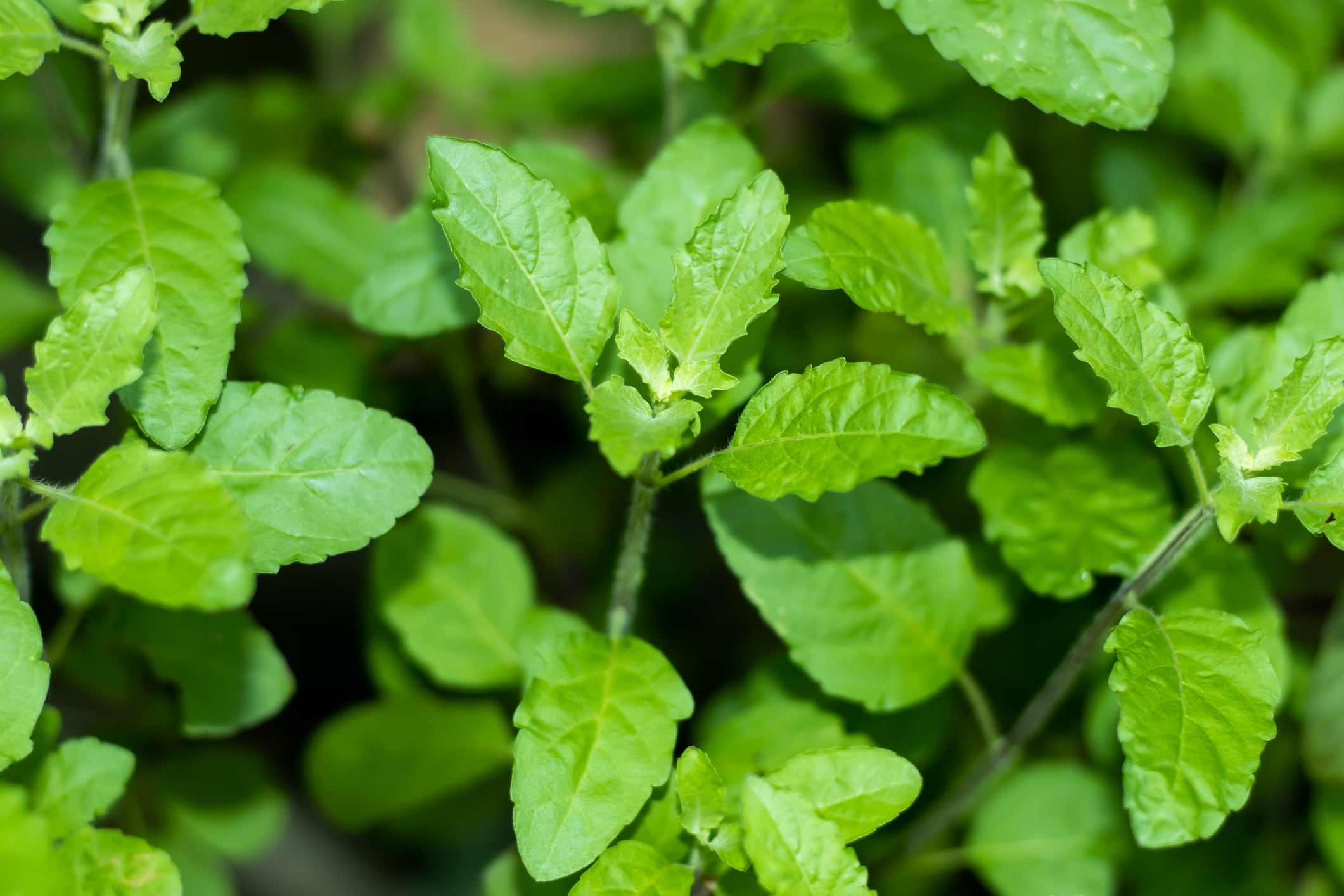Adult participants recorded 37% reductions in perceived stress, 48% decreased insomnia, and 3.4% increased sleep efficiency after taking 250mg daily for eight weeks.
Ocimum tenuiflorum is believed to promote longevity and general well-being but clinical trials also testify to its anti-stress, adaptogenic, antioxidant and analgesic properties, among others.
There are limited trials on Ocimum as an anxiolytic agent, although anti-stress benefits have been identified in adults with stress and anxiety disorders when consumed in doses of 1,000 and 1,200mg, respectively.
However, the current trial observed anti-stress effects of Ocimum tenuiflorum at a much lower dose (250mg) and also demonstrated sleep-enhancing benefits not previously studied, the authors wrote.
Study parameters
The trial purpose was to analyse the effects of Ocimum tenuiflorum on physiological and subjective responses after exposure to the Masstricht Acute Stress Test (MAST) to elucidate the mechanisms influencing the hypothalamus-pituitary-adrenal (HPA) axis and sympathoadrenal medullary system (SAM).
Participants aged 18-65 years were recruited for the double-blind, placebo-controlled trial through social media advertising and email databases and were required to score 14 or higher on the perceived stress scale (PSS) and give a rating of three or higher on at least one of the first five questions of the immune stress questionnaire (ISQ), as part of inclusion criteria.
The intervention extract (Holixer) was supplied by Natural Remedies in India and contained 62.5mg of Ocimum tenuiflorum per capsule. The placebo contained microcrystalline cellulose and syloid. Both products matched in appearance for colour, shape, size, smell, and taste.
Volunteers were instructed to take two capsules twice daily with or without food for eight weeks.
The primary outcome on stress levels and secondary outcome on mood state were measured using a range of self-reported questionnaires, data from a Fitbit to measure sleep time and efficiency, and hair cortisol analyses.
Results
Findings indicate that Ocimum tenuiflorum has the potential to reduce HPA-axis activity after exposure to an acute stressor and demonstrated by overall reductions in cortisol, salivary alpha-amylase (sAA), blood pressure and stress ratings before and up to 40 minutes following exposure to the MAST.
There were significantly lower hair cortisol concentrations in subjects in the intervention group compared to the placebo, the authors noted.
“Hair cortisol provided a chronic measure of cortisol excretion, suggesting Ocimum tenuiflorum taken for 8 weeks can reduce overall cortisol output in adults experiencing stress and poor sleep.”
They explained that reductions in salivary sAA and cortisol suggest that Ocimum had a buffering effect on the SAM system and the HPA axis, respectively, in response to an acute stressor.
“Other mechanisms of action potentially associated with the anti-stress effects of Ocimum tenuiflorum include its ability to reduce stress-induced alterations in monoamines such as serotonin and dopamine, and markers of oxidative stress,” they added.
Results showed that between-group changes in sleep efficiency and total sleep time measured by the Fitbit were not significantly different and there were no changes in other self-reported mood measures.
Limitations
Despite several positive findings, the authors pointed out several limitations and propose directions for future research.
The protocol for measuring hair cortisol was oversimplified and should involve collection of hair samples at baseline and end of treatment to ensure a more reliable measure of change in cortisol in future, the authors said.
They also pointed out that future research should establish product efficacy at various doses and treatment periods, as well as focusing on benefits based on age, sex and various environmental and social stressors, and on individuals with diagnosed anxiety disorders.
Source: Nutrition
Published online, September 2, 2022: http://doi.10.3389/fnut.2022.965130
‘A randomized, double-blind, placebo-controlled trial investigating the effects of an Ocimum tenuiflorum (Holy Basil) extract (Holixer) on stress, mood, and sleep in adults experiencing stress’
Authors: A.L. Lopresti, et al.

